




To restore streamflow and improve water quality in the Deschutes Basin.
Local governments, NGOs, and basin stakeholders are implementing a collaborative water management agreement, balancing water for irrigators, municipalities, and rivers, while streamflows are steadily meeting targets. Habitat restoration efforts are in full swing, trust is high among partners, and citizens are actively supporting the Deschutes River Conservancy’s flow restoration strategies.
Open. Value and seek out diverse perspectives.
Consensus-based. Work to overcome differences and make consensus decisions.
Collaborative. Deploy cooperative, non-regulatory approaches. Committed to helping all parties achieve their respective goals.
Innovative. Proactively seek new approaches for solving old problems.
Non-litigious. Do not engage in litigation.
Adaptive. Adapts and refines goals and strategies based on evolving information and opportunities.
Partnership-based. Leverage partners’ strengths to complement flow restoration with the physical habitat restoration and land conservation necessary to achieve watershed-scale outcomes.
Equitable. We live the values of justice, equity, diversity, and inclusion.
Natasha Bellis - ENVIRONMENT
Deschutes Land Trust
Bobby Brunoe - (CHAIR) TRIBAL
Confederated Tribes of Warm Springs
Chandra Ferrari - STATE Oregon Department of Fish and Wildlife
Phil Fine - IRRIGATION
North Unit Irrigation District
Steve Forrester - LOCAL GOVERNMENT City of Prineville
Zach Freed - ENVIRONMENT
The Nature Conservancy
Jay Henry - (PAST CHAIR) AT LARGE
Megan Hill - HYDROELECTRIC
Portland General Electric
Craig Horrell - (SEC./TREASURER) IRRIGATION
Central Oregon Irrigation District
Jade Mayer - (VICE CHAIR) AT LARGE
Emelie McKain - STATE Oregon Water Resources Department
Bridget Moran - FEDERAL
U.S. Fish and Wildlife Service
Bill Munro- FEDERAL U.S. Forest Service
Vacant - FEDERAL
U.S. Bureau of Reclamation
Vacant - TRIBAL
Confederated Tribes of Warm Springs

STAFF
Kate Fitzpatrick - Executive Director
Jim Bond - Program Director
Alex Ehrens - Program Manager
James Faughnan - Office Manager
Kris Harwell - Senior Accountant
Marisa Hossick - Communications Director
Gen Hubert - Senior Program Manager
Sarah Kelly - Director of Finance & Operations
Jacob Kimiecik - Program Manager
Ben Kittell - Development & Communications Coordinator
Lisa Seales - Program Manager
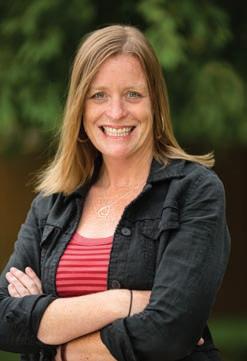
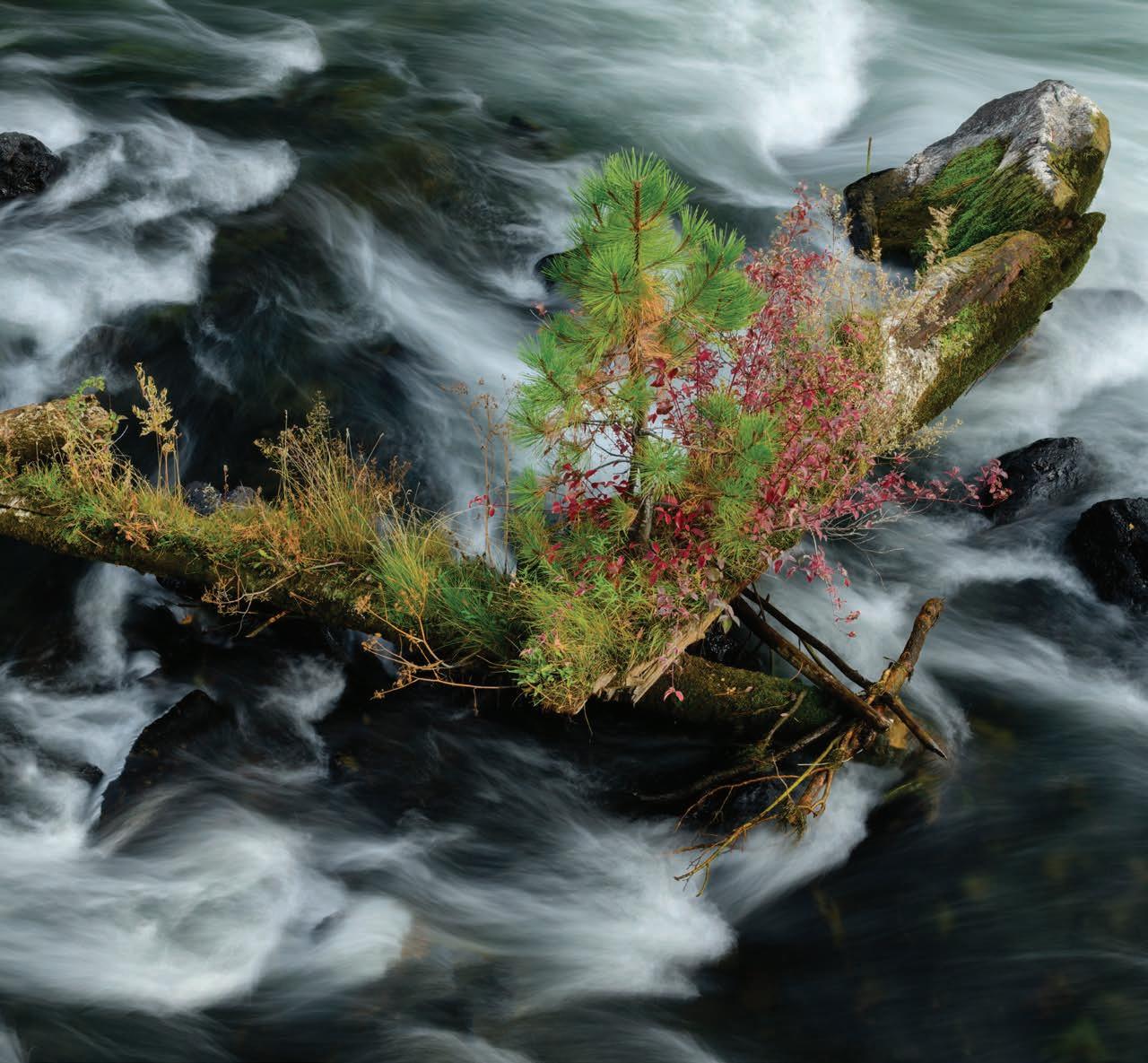
laboration of irrigation districts to increase efficiency and share water with those facing scarcity.
• Our instream leasing program restored 80 cfs of flow to basin rivers this year. In the Middle Deschutes, leases contributed 25% of the summer flow below Bend. We protected an additional 6 cfs in this reach through permanent instream transfers.
• We leased 6 cfs in Trout Creek, enhancing habitat for migrating wild steelhead, and 16 cfs in Whychus Creek, building on permanent flow restoration to support reintroduced steelhead and native redband trout.

be possible without the unwavering support of our Board of Directors, our partners—including farmers, Tribes, local governments, and dedicated volunteers—and, of course, you.
Thank you for being a part of this incredible journey. With your continued support, we will secure a sustainable future for the Deschutes River and for all who rely on it.
Together for the river,

For more than a century, water has been diverted from Central Oregon rivers to help our farms, ranches, and communities grow. But our rivers have been overallocated—more water has been promised than is available, often leaving little to nothing to keep our rivers healthy.
The Deschutes River Conservancy (DRC) has been collaboratively restoring streamflow and improving water quality in the Deschutes River Basin since 1996.
Marked-based transactions—voluntary temporary leasing and permanent transfers of water from irrigators back to the river—have been effective tools for streamflow restoration since 1996. In 2024 alone, the leasing program bolstered flows in the Deschutes Basin by 80 cubic feet per second (cfs) (or the equivalent of filling 80 standard bathtubs per minute)
Growing on the success of this work, the DRC is working with irrigation and municipal partners to develop a basin-wide Deschutes Water Bank. This locally governed voluntary market-based system will facilitate the efficient movement of water from areas of less need to areas of greater need, fostering greater water security for farmers facing scarcity and growing communities while at the same time restoring streamflows in the Deschutes River Basin.

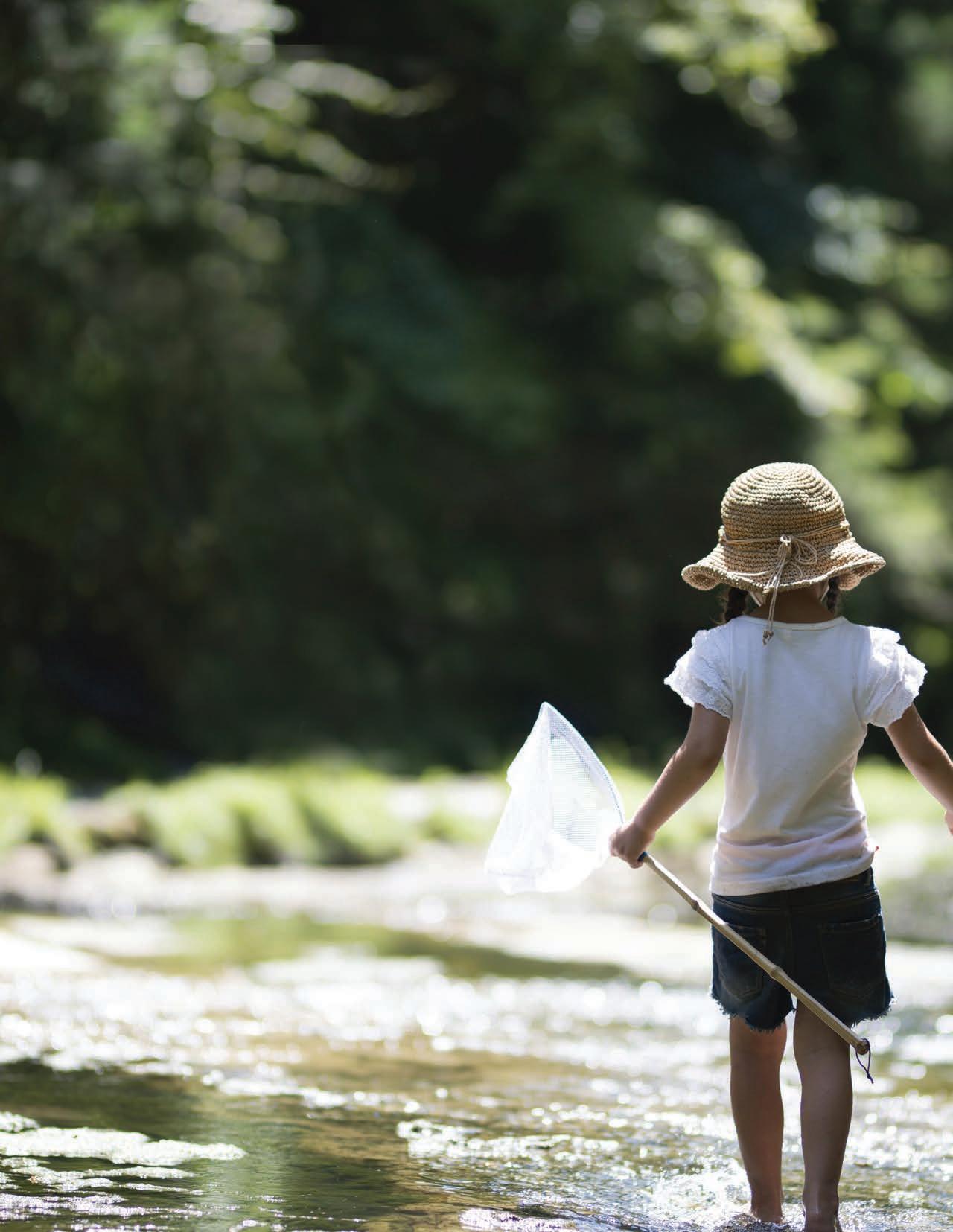
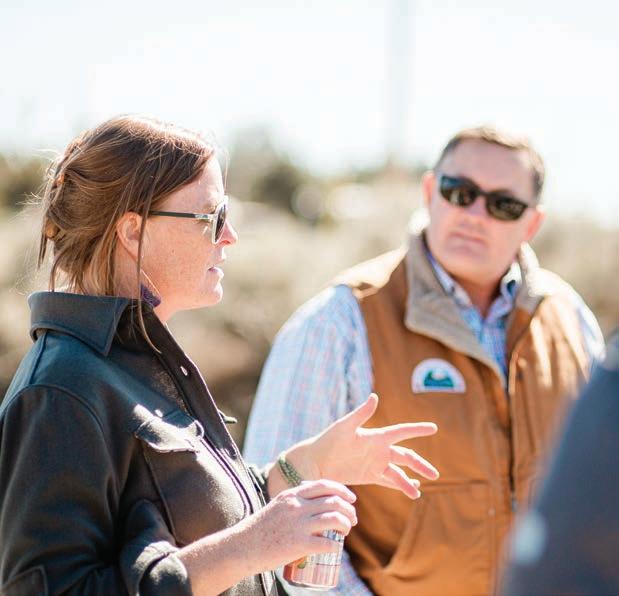
We are dedicated to uniting diverse stakeholders to address the longstanding water challenges of the Deschutes River Basin. Our collaborative approach has crafted strategies that balance natural systems, agricultural, and community needs, leading to significant achievements such as the revitalization of Whychus Creek and restoring flows in the Middle Deschutes and Lower Crooked Rivers. These successes exemplify our commitment to sustainable, community-supported water management solutions, including developing a basin-wide water management plan.
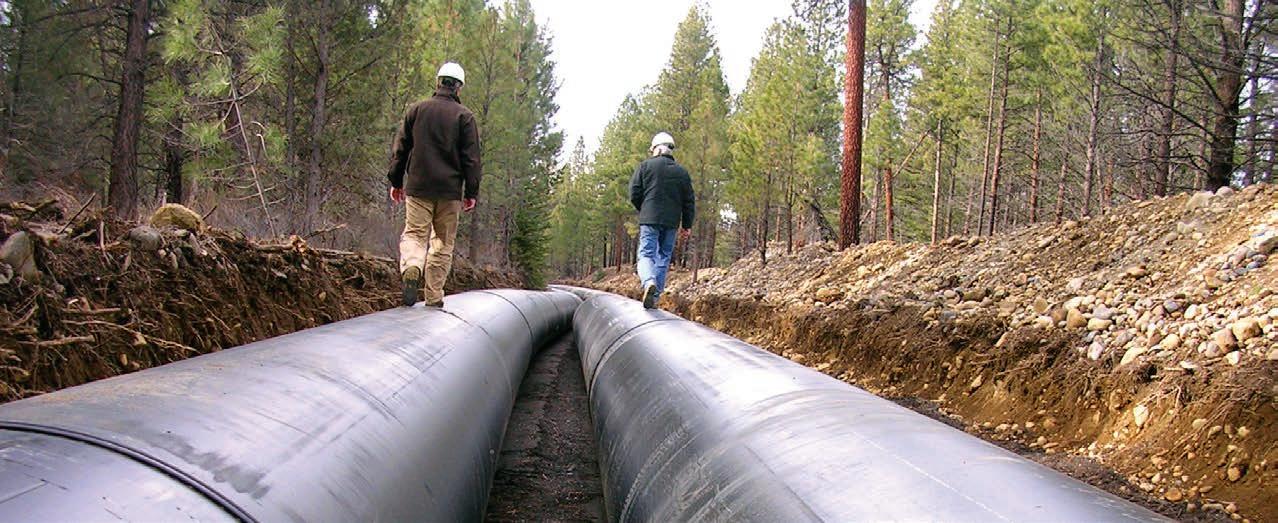
Modernizing century-old irrigation district canal infrastructure, while assisting landowners in upgrading irrigation systems with more efficient methods, is one of DRC’s central strategies for restoring streamflow in the basin. These infrastructure projects—ranging from small on-farm upgrades to multi-million dollar district projects—protect water instream while boosting supply reliability for irrigators challenged with water scarcity.

CFS Restored equivalent to more than 14 Olympic-sized swimming pools per hour
Will fish have the water they need to survive and thrive in the basin? How does the family farmer make a living in times of drought?
Can cities continue to grow without taxing an already burdened watershed?
The DRC co-leads the Deschutes Basin Water Collaborative, a diverse group of stakeholders working together to develop and implement a comprehensive, long-term water management plan that balances the needs of both our communities and the health of the river.
By uniting stakeholders and implementing consensusbased solutions, we restore the flows needed to support healthy, functioning rivers. We address associated water quality issues and support partners implementing complementary habitat restoration and fish passage work.

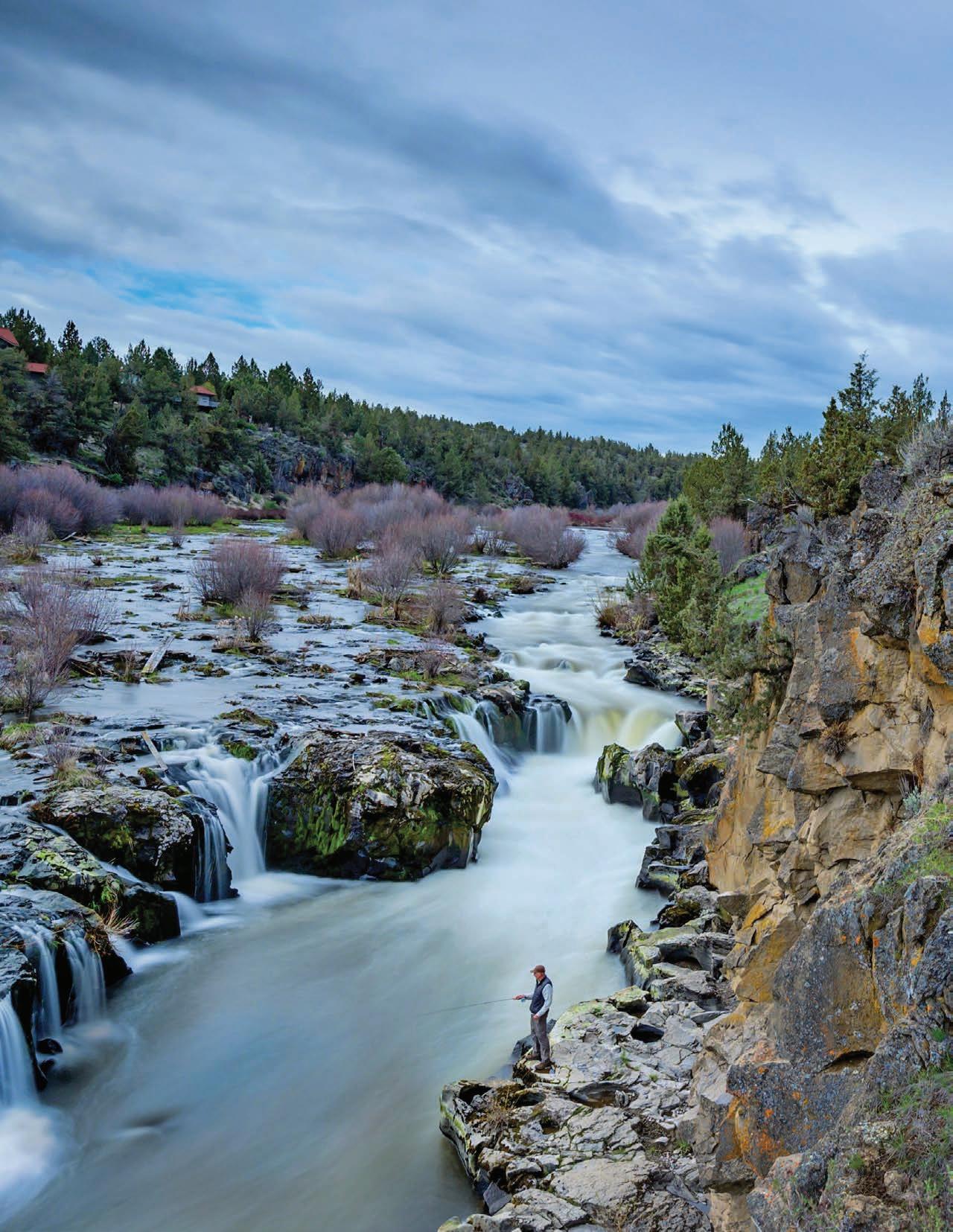
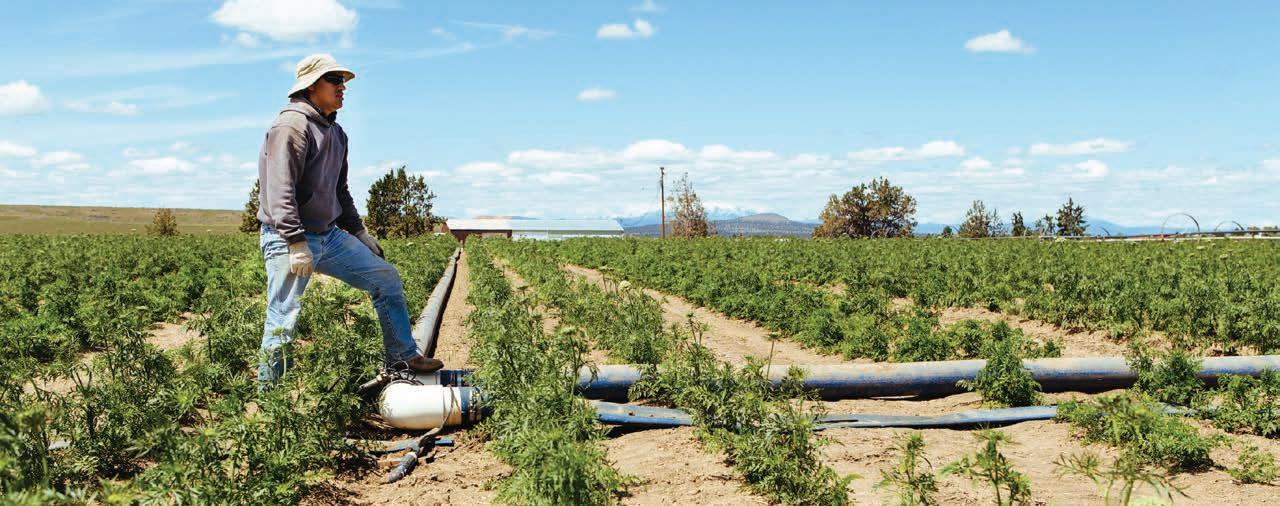
How can we improve how we move and use water? This question is at the forefront for Central Oregon’s farmers. Through innovative water conservation projects, they can achieve unprecedented efficiency with upgrades such as piped canals, careful crop choices, drip irrigation, and pressurized delivery systems. These improvements enable irrigators to adapt to drought conditions and manage reduced water allocations more effectively. Given that over 80% of the region’s diverted water is used for irrigation, these infrastructure improvements are crucial for restoring river flows and enhancing water sustainability.
including local communities, agricultural interests, Tribal representatives, environmental groups, and governmental agencies.
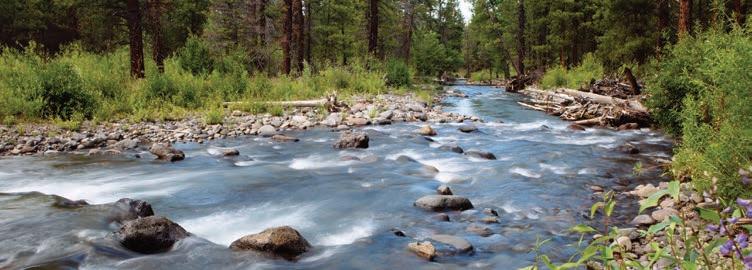
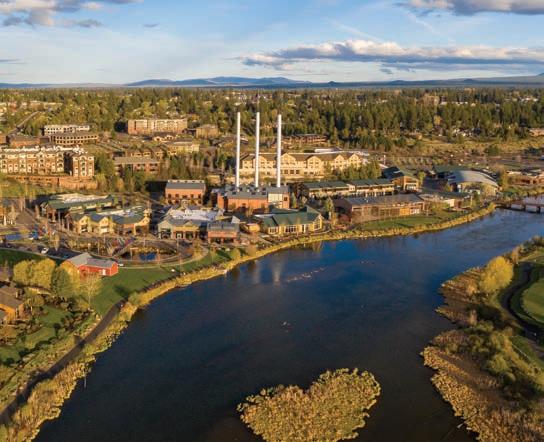
Despite Bend’s population nearly doubling since the early 2000s, the city has successfully reduced peak daily water demand to below 2008 levels by implementing water conservation measures. Other Central Oregon cities have adopted similar strategies to manage water use efficiently. Although the region’s cities account for only 2% of river water usage, securing future supplies remains challenging amid rapid growth and climate change. The DBWC’s water management plan explores a range of tools and strategies, serving as a model for regional water management and emphasizing the need for integrated planning to meet increasing demands in a changing climate.

Conservation and collaboration are fundamental to the Confederated Tribes of Warm Springs’ tradition. According to the Tribes’ teachings, the Creator endowed humans with four sacred gifts: water, as the lifeblood of the world to be respected and protected; fish, teaching moderation and sustainability; deer and elk, symbolizing the stewardship of wildlife; and roots and berries, which thrive only if we live in harmony with the land. These gifts form a sacred trust, guiding the Tribes’ interactions with nature.
“These gifts are not merely resources; they are sacred trusts. In honoring them, we work to preserve the balance in places like the Deschutes Basin and beyond, ensuring that these blessings endure for future generations. Through fish habitat restoration, water management, and wildlife conservation, the legacy of these gifts continues, reminding us of our duty to live in harmony with all that the creator has provided.”
Bobby Brunoe, Secretary/Treasurer & CEO of the Confederated Tribes of Warm Springs, and DRC Board Chair

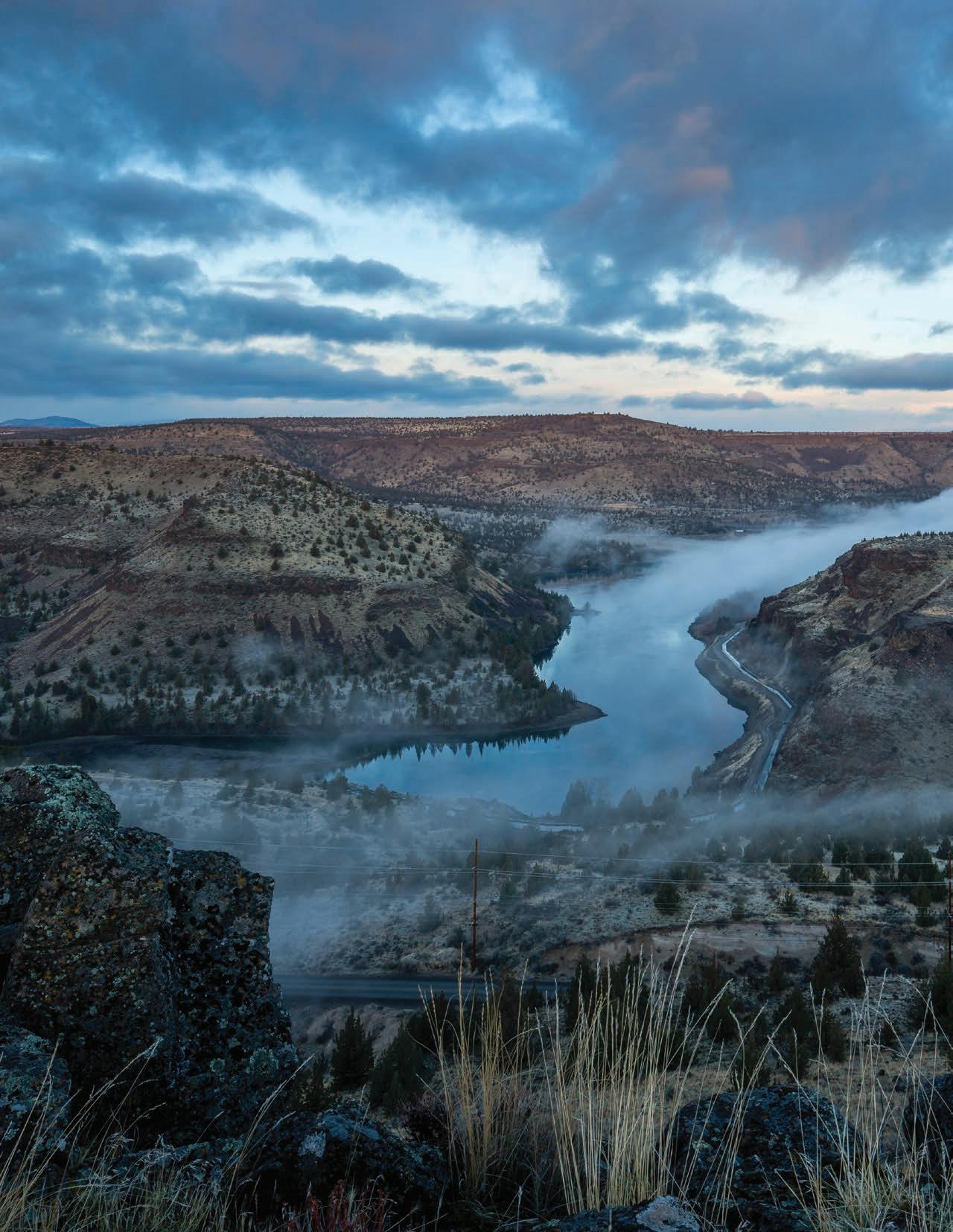
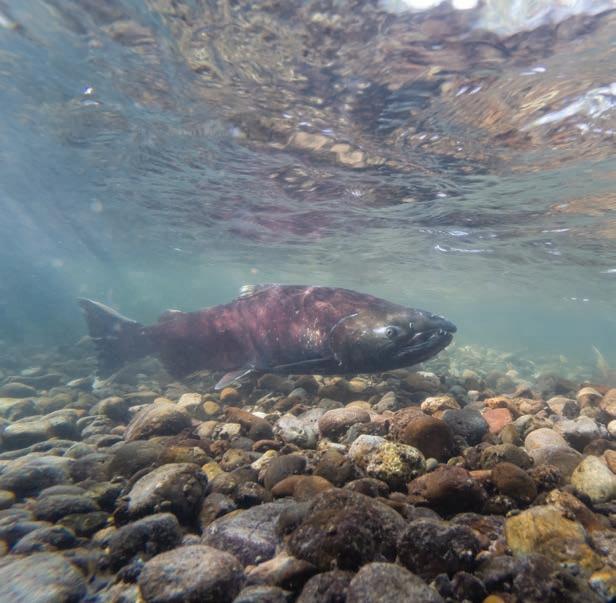
The Confederated Tribes of Warm Springs’ 1855 treaty with the United States created the framework for the Tribes’ sovereign relationship with the land. This treaty explicitly reserves the Tribes’ rights to hunt for traditional foods within their reservation and throughout their historic ceded lands. The Deschutes Basin falls almost entirely within these lands (see map), fostering a strong sense of responsibility and regional environmental stewardship, which led to their co-founding and ongoing work with the Deschutes River Conservancy (DRC). Leveraging these rights, the Tribes advocate for sustainable water practices that benefit both their community and the broader ecosystem. As a foundational member and chair of the Board of Directors, the Tribes continue to guide the DRC’s strategies to ensure the respect of Indigenous cultural values and legal rights.
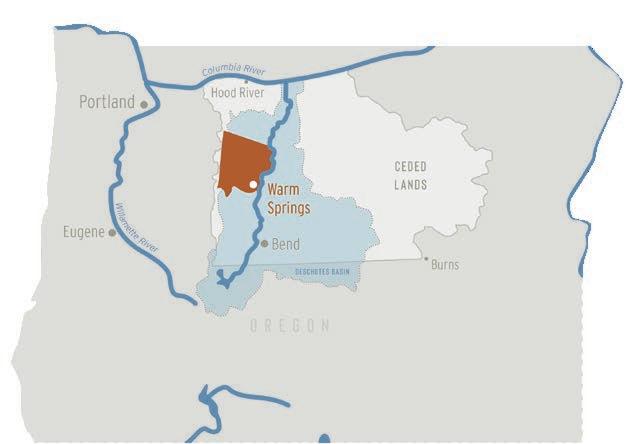
Honoring the wisdom of the previous seven generations, decisions are made with care for the support of the next seven generations. There is a deep understanding that not only will the Tribes remain, but the neighbors will as well. The question is always asked: how can collaboration today benefit all of the generations to come?

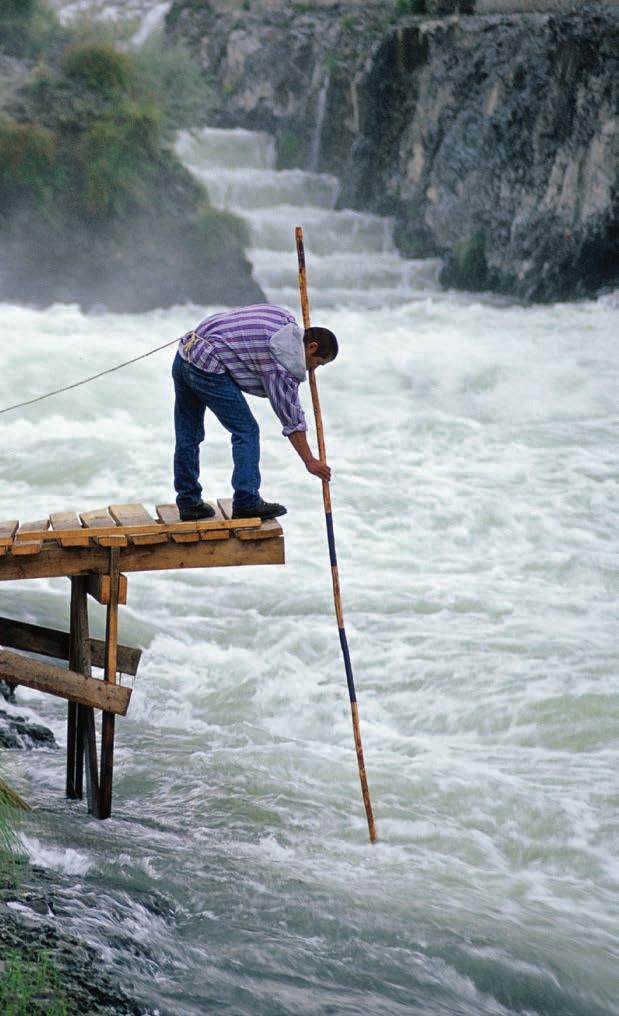
Join our community of passionate river supporters by investing in solutions that restore flows. Your monthly membership becomes water in our river when you join the Instream Collective!
Monthly memberships through the Instream Collective provide reliable support that offers the DRC the financial agility to address funding gaps and secure time-sensitive opportunities. Your support contributes directly to restoring flows and improving water quality throughout the Deschutes Basin, using proven tools like the DRC’s Instream Leasing program. Your contributions create a ripple effect, making a lasting impact on the health of our rivers.


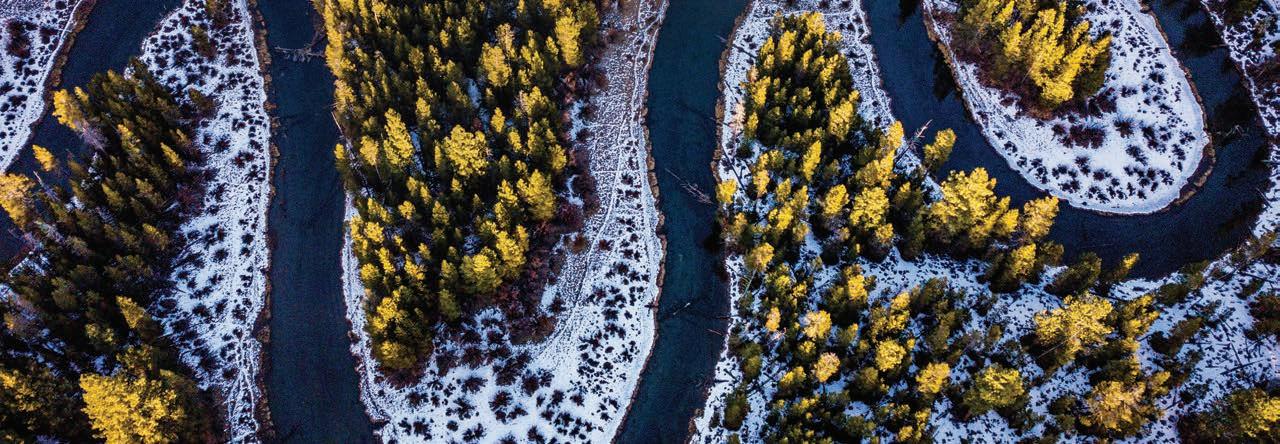
DRC’S NEW membership program — where your investment becomes our future flows!
MEMBERSHIP LEVEL INVESTMENT IN OUR RIVERS
Creek Impact – Helps the DRC restore 3,000 gallons to the river. That’s the average monthly water use for a single-person household! $12 monthly
River Impact – Helps the DRC restore 6,000 gallons to the river. That’s the average monthly water use for a two-person household!
Watershed Impact – Helps the DRC restore 12,000 gallons to the river. That’s the average monthly water use for a four-person household!
Join a special network of change-makers.
Member benefits include:
• Early access to DRC events.
• Direct communications from DRC staff and partners.
• Periodic discounts and perks from local small businesses who support DRC’s mission, just like you!

$24 monthly
$48 monthly
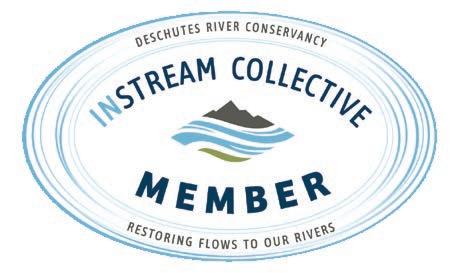


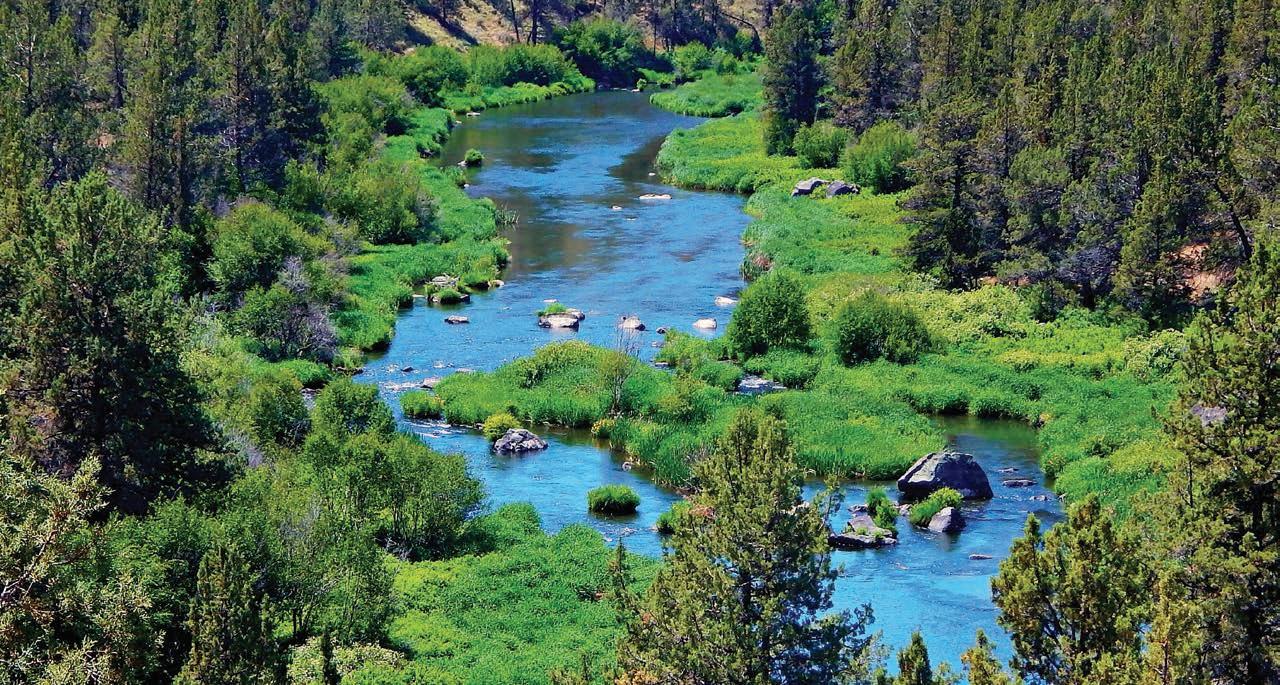
The DRC’s Raise the Deschutes Seminar Series is a resource for anyone interested in water issues in the basin. Presented by experts in the field, the seminars cover a wide range of pertinent topics—from water rights and irrigation to Tribal perspectives on water stewardship. The ability to access replays of past seminars adds an extra layer of convenience for those who miss the live sessions. Whether you’re a concerned citizen, a policymaker, or a river advocate, this series offers a comprehensive and engaging look at the challenges and solutions related to water sustainability in the region.

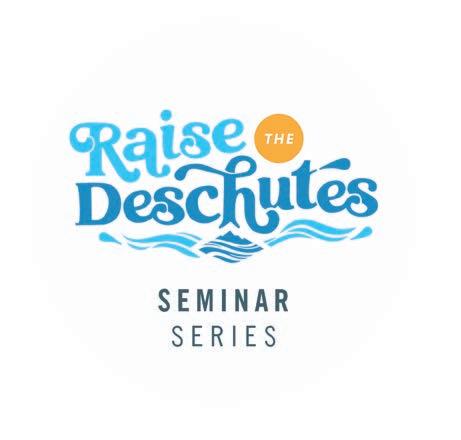
We plan several seminars and tours each year. Scan the QR code below to learn about future events and read more about the Deschutes River Basin.
We have sponsorship opportunities available for this popular community event. For details, please contact development@deschutesriver.org.


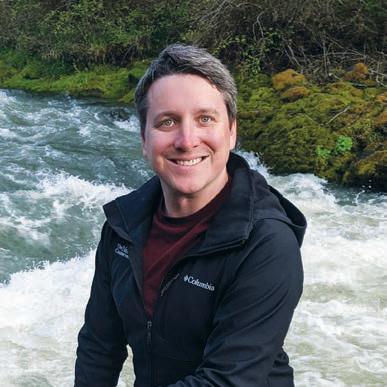
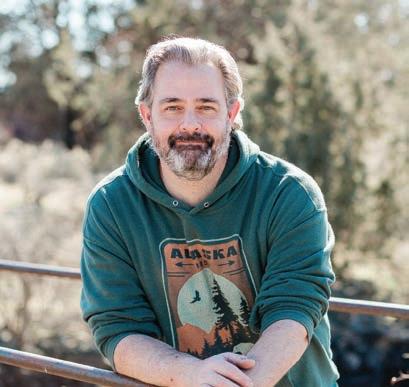
The DRC welcomes Zach Freed (left), Oregon Water Strategy Director at The Nature Conservancy, and Bill Munro (right), Natural Resource Staff Officer at Deschutes National Forest at the USDA Forest Service, to the board to enhance our Deschutes River Basin initiatives.



The DRC welcomed three new staff members to the team in 2024. We’re excited for what they bring to the organization.
Sarah Kelly (left) – Finance and Operations Director; James Faughnan (middle)– Office Manager; Alex Ehrens (right)– Program Manager
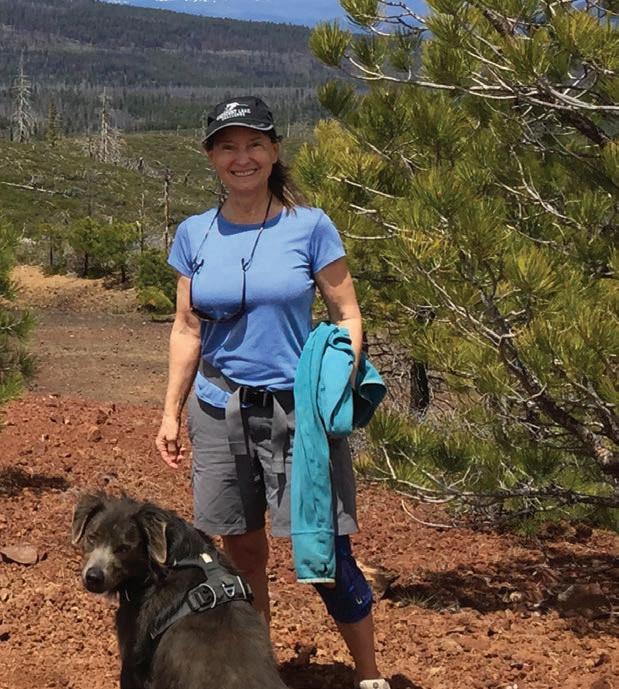
Through over three decades at the U.S. Fish and Wildlife Service and her ongoing environmental advocacy, Nancy’s dedication continues to shape the future of the Deschutes Basin.
Jay Henry, DRC Board Member
Nancy, with a notable 31-year tenure as a wildlife biologist and Field Supervisor at the U.S. Fish and Wildlife Service’s Bend Office, played a key role in crafting a Habitat Conservation Plan for the Deschutes Basin’s endangered species. Now retired, Nancy recently concluded 14 years of dedicated service on the Upper Deschutes Watershed Council Board and 11 years as a board member of the Deschutes River Conservancy. She continues her environmental advocacy with the local Sierra Club. Esteemed for her soft-spoken wisdom and unwavering commitment to nature and collaborative solutions, Nancy’s past leadership remains a guiding force in our mission to enhance streamflow and water quality. Thank you, Nancy!
Steve, former manager of both Central Oregon and Arnold Irrigation Districts, has been instrumental in advancing irrigation sustainability through over $80 million in water conservation efforts, including a 5-megawatt hydroelectric facility and vital fish habitat enhancements. With his tenure on the DRC Board and as co-chair of the Deschutes Basin Water Collaborative, Steve’s collaborative spirit and strategic foresight have been pivotal in moving irrigation districts into the future and protecting streamflow. Known for his ‘affliction’ for water and a talent for enlivening challenges with wit, Steve has made an indelible impact on our water stewardship mission.
Steve’s blend of strategic foresight and a collaborative approach has profoundly influenced the way we manage water resources and protect vital ecosystems in the Deschutes Basin.
Bobby Brunoe, Secretary/Treasurer & CEO of the Confederated Tribes of Warm Springs and DRC Board Chair
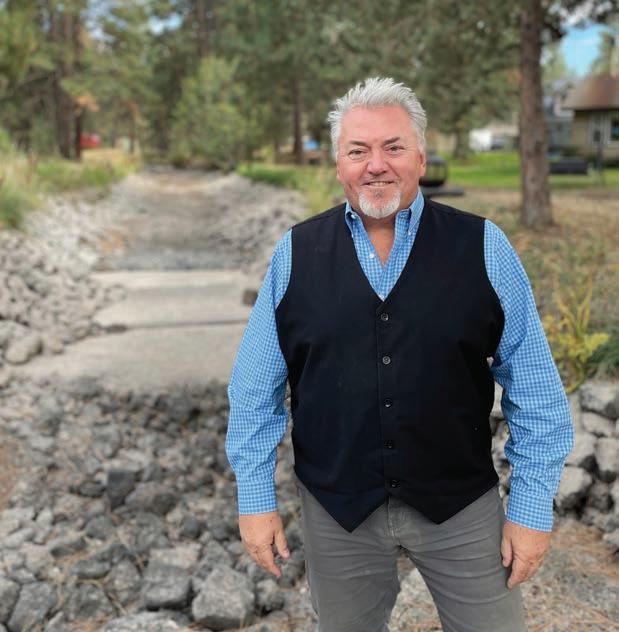

The Deschutes River Conservancy remained financially robust in 2023, thanks to ongoing community support.

Deschutes
Deschutes
DRC
Help us create a more resilient water future for the Deschutes Basin. SUPPORT our mission to restore streamflow and improve water quality in our local rivers and streams.

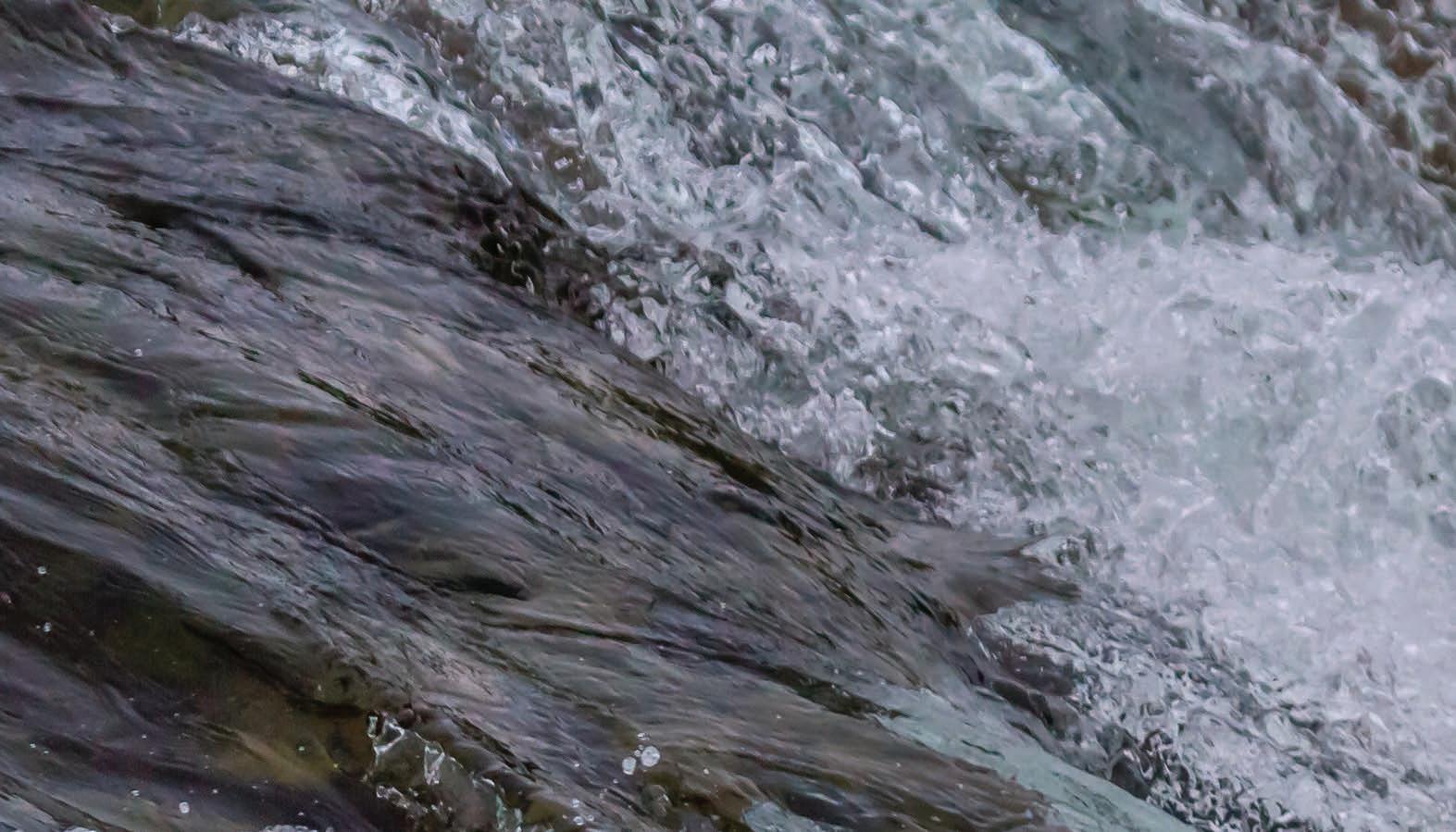

Stay tuned for upcoming DRC events. Visit the ‘JOIN US’ tab on our website to make sure you don’t miss a thing.
